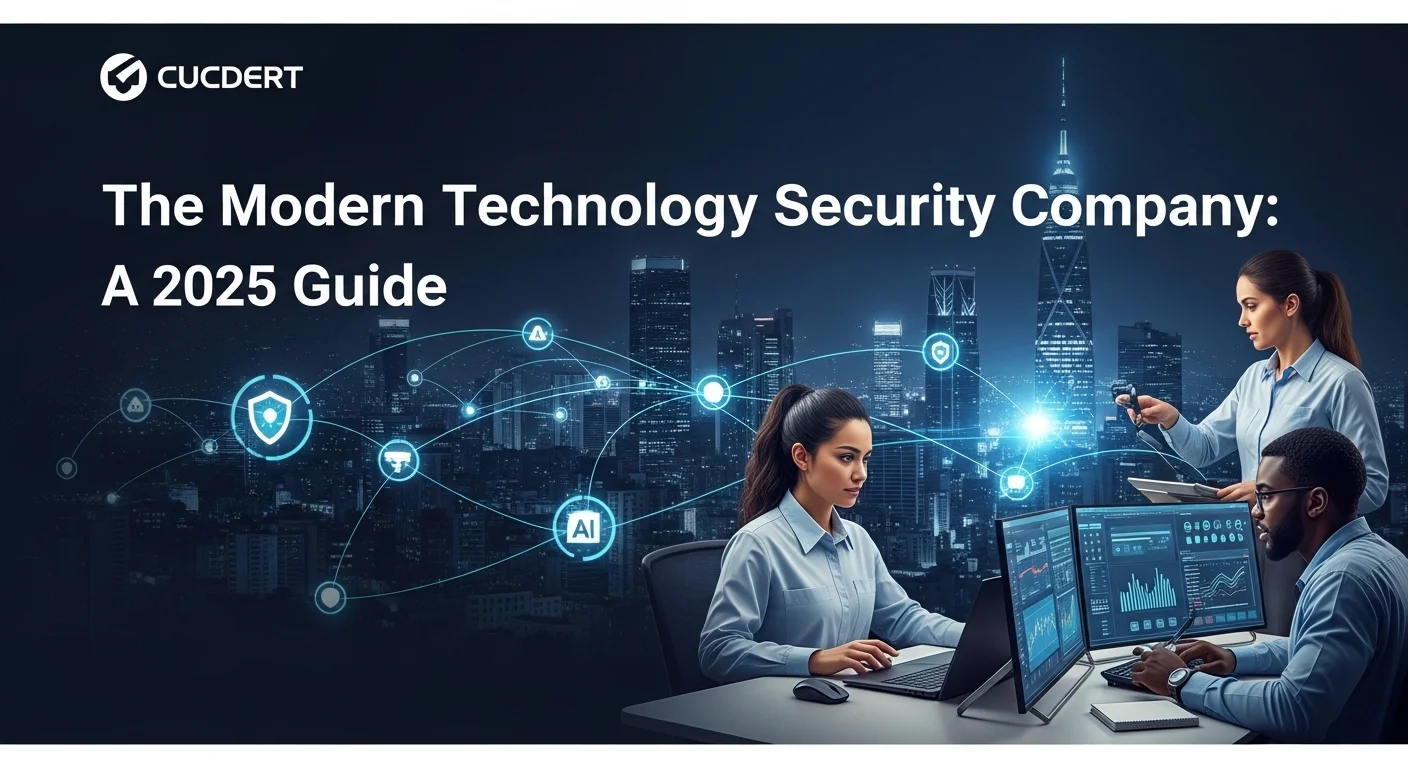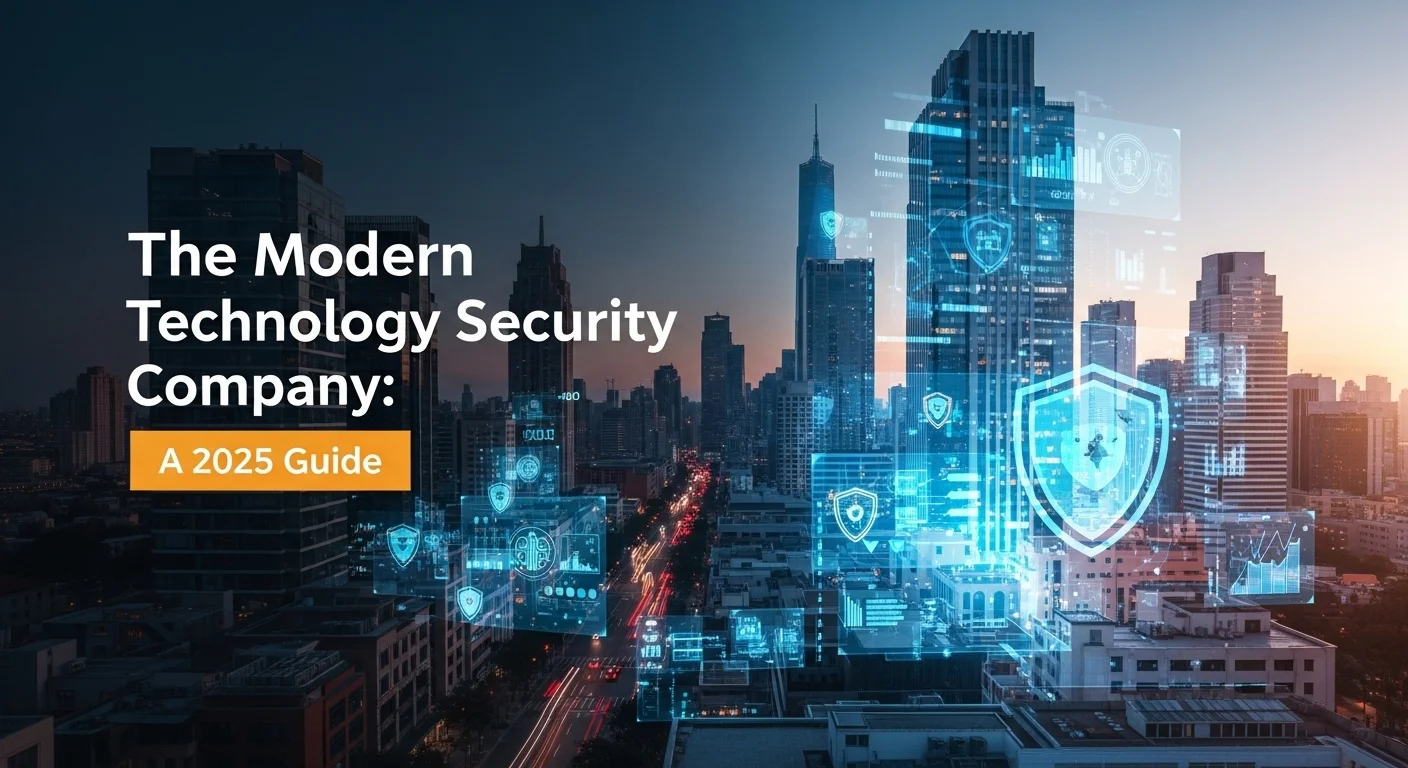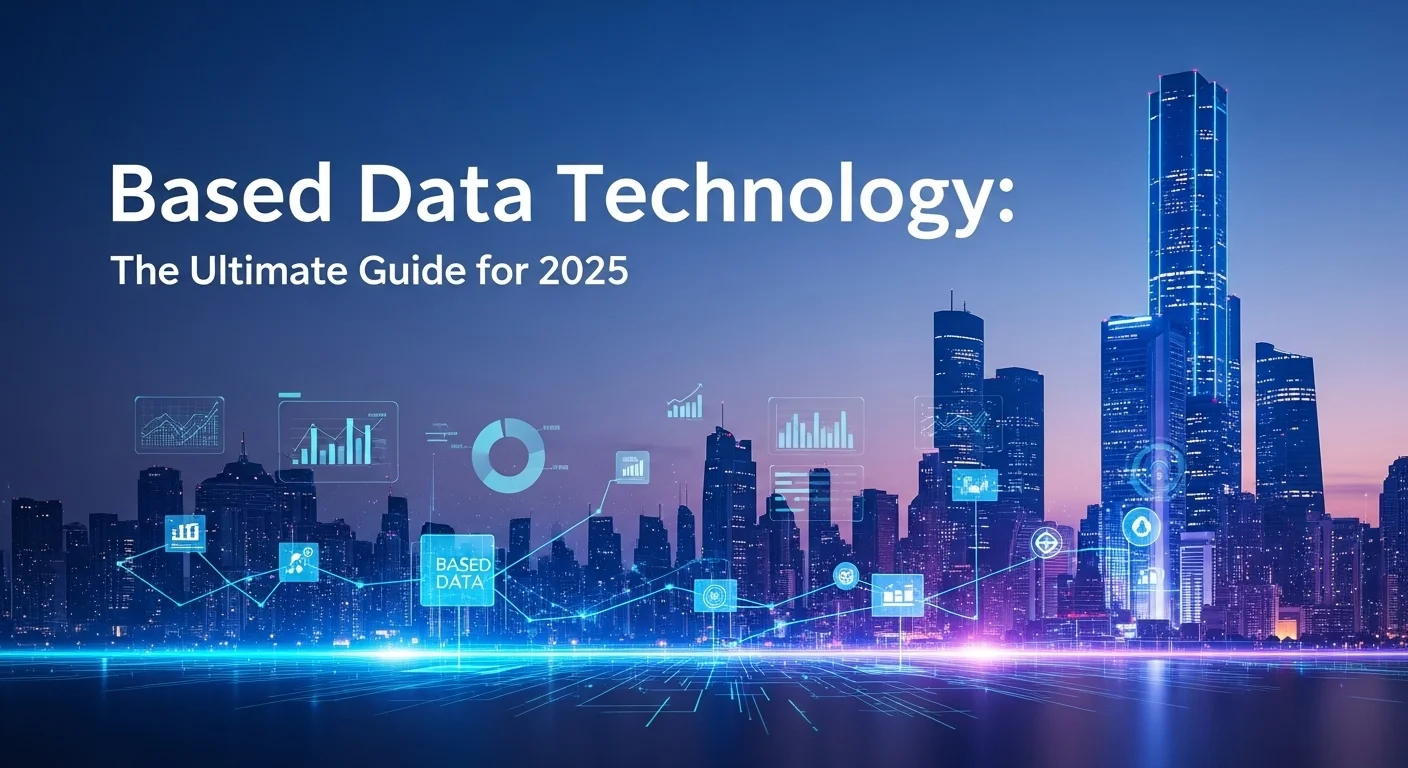Beyond the Firewall: Your Ultimate Guide to Choosing a Tech Security Partner

Executive Summary
In my 15+ years in the cybersecurity trenches, I've seen the term 'Security Company' evolve from night watchmen to digital guardians. Today, it's not about physical locks; it's about protecting the very core of your business in a world run on data. This guide is my attempt to cut through the noise. We'll explore what these modern tech security firms really do—from using AI to hunt threats before they strike to defending your cloud infrastructure. I want to give you a clear, honest look at what separates a good security partner from a great one. For business owners and IT leaders, think of this as your roadmap. We'll cover how to choose the right firm, what tech actually matters, and how to integrate their services to protect your most valuable asset: your information. This isn't just about avoiding disaster; it's about building a business that people trust and that's ready for whatever comes next.
Table of Contents
Table of Contents
- What is a Technology Security Company, Really?
- From Antivirus to AI: The Evolution of Cyber Defense
- Inside the Tech Arsenal: Core Functions and Tools
- Why It Matters: The Real-World Business Benefits
What is a Technology Security Company, Really?
Let's be honest, the idea of a 'security company' has changed dramatically. It used to conjure images of guards and gates. Today, the real action is in the digital world. A modern technology security company is your specialized partner dedicated to protecting your digital life—your data, your infrastructure, and your reputation—from an endless stream of cyber threats. I've seen firsthand that these firms are much more than just an outsourced IT helpdesk; they are strategic partners who help you manage risk and keep your business running. Their importance is hard to overstate. Every piece of data you handle is a target. A single breach can be catastrophic, leading to huge financial losses, a tarnished brand, and legal headaches. In 2023, the average cost of a breach was over $4 million, which tells you everything you need to know about the value of professional protection. [12] Businesses today are a web of connected systems: cloud services, employee phones, IoT devices. This creates a huge, inviting target for attackers. A tech security partner acts as your digital shield, using their expertise to defend this entire ecosystem so you can focus on growth with peace of mind.
From Antivirus to AI: The Evolution of Cyber Defense
I remember when installing an antivirus program on your PC felt like you were building a digital fortress. Those days are long gone. As technology got smarter, so did the bad guys. Hackers went from lone wolves to sophisticated criminal organizations. The sheer volume of ransomware, phishing, and complex attacks made that old antivirus software obsolete. This forced the industry to evolve, giving rise to the modern information security company. These firms shifted from a reactive 'clean-up' model to a proactive, comprehensive defense strategy. We all learned that security isn't a product you install and forget; it's a 24/7 process of assessing, protecting, detecting, and responding. The best online security companies today are like an extension of your own team, offering round-the-clock monitoring and rapid response that most businesses could never afford to build themselves. [3] In my experience, this partnership is essential. The question is no longer *if* you'll face an attack, but *when*—and who you'll have in your corner when it happens.
Inside the Tech Arsenal: Core Functions and Tools
A top-tier technology security company comes armed with some seriously impressive tech. At the core is usually a Security Operations Center (SOC), a command center where expert analysts watch over your networks 24/7. Here’s a simple breakdown of the key tools they use:
- SIEM (Security Information and Event Management): Think of this as the central nervous system. It gathers security alerts from all your tech—servers, firewalls, cloud apps—into one place, helping analysts spot trouble.
- EDR/XDR (Endpoint Detection and Response): This is way beyond old-school antivirus. EDR acts like a security guard on every computer and server, watching for suspicious behavior, not just known viruses. XDR expands that view to your entire network and cloud, connecting the dots for a bigger picture.
- AI and Machine Learning (ML): The top data security companies are all-in on AI. [13] It's a game-changer. AI can sift through mountains of data to find subtle threat patterns a human would miss, allowing for predictive defense and lightning-fast automated responses. [18]
- Threat Intelligence Platforms: These systems act as a global spy network, gathering intel on new hacker tactics and emerging threats. This allows your security partner to prepare your defenses before an attack even hits.
- Cloud Security Tools: With everyone moving to the cloud, tools like CSPM (Cloud Security Posture Management) and CASB (Cloud Access Security Brokers) are essential. They ensure your data and apps are locked down in environments like AWS, Azure, and Google Cloud. [9]
Why It Matters: The Real-World Business Benefits
Working with a technology security company pays dividends far beyond just stopping hackers. For any business today, partnering with one of the best data security companies is a smart investment in your future. Here are the core benefits I've seen clients realize time and again:
- Protecting Your 'Secret Sauce': Your intellectual property—be it designs, code, or client lists—is often your most valuable asset. A security partner is the vault that protects it from thieves.
- Building Customer Trust: A data breach can destroy your reputation overnight. Showing customers you're serious about protecting their data is a powerful way to build trust and set your brand apart.
- Staying Out of Regulatory Trouble: If you're in an industry like healthcare (HIPAA) or handle European data (GDPR), the compliance rules are no joke. [12] A good security firm helps you meet these requirements and avoid massive fines.
- Keeping the Lights On: An attack like ransomware can shut down your entire operation. A security partner helps you plan for disasters and get back on your feet quickly with minimal disruption. [9]
- Innovating Safely: As you adopt new tech like AI or IoT, you're also creating new security risks. A security partner ensures you can innovate confidently, without opening up new backdoors for attackers. The most respected data security companies excel at this.

A Complete Guide to Security Services and Finding Your Perfect Match
Choosing a technology security company is a huge decision. I always tell my clients it's like choosing a business partner, not just a vendor. It’s a relationship built on trust and a shared goal of protecting your organization. [2] This guide will walk you through the key services on offer, help you figure out what to look for in a partner, and compare the different ways you can structure your security. It can feel overwhelming with so many providers out there, but if you know what to look for, you can find a partner who becomes a genuine strategic asset. The goal here is to move from a simple buyer-seller transaction to a true alliance that secures you for the long haul.
A Deep Dive into Core Security Services
Modern security firms offer a whole menu of services to protect your digital footprint. [3, 15] While some are specialists, the top data security companies usually offer a full suite. Understanding what's on offer is the first step to knowing what you need. [17] Here are the big ones:
- Managed Security Services (MSSP): This is the foundation. An MSSP takes over the 24/7 management and monitoring of your security tools like firewalls and intrusion detection systems. It's the core of most outsourced security. [15]
- Vulnerability Assessment & Penetration Testing (VAPT): Think of this as hiring a team of 'good guy' hackers. They proactively probe your systems for weaknesses (vulnerability assessment) and then simulate a real attack (penetration testing) to see how your defenses hold up. [6] It's a critical reality check offered by the best online security companies.
- Incident Response (IR): When a breach happens, this is the emergency response team. [12] They parachute in to contain the damage, kick the attacker out, and get you back online. They also conduct digital forensics to figure out exactly what happened.
- Threat Intelligence: This is the 'know your enemy' service. It's all about gathering data on who the attackers are, what methods they're using, and what they're targeting. This intel helps you build smarter, more targeted defenses.
- Cloud Security: As businesses flock to the cloud, this specialty has become vital. [18] It involves making sure your cloud accounts are configured securely, your cloud servers are protected, and access to cloud apps is controlled.
- Data Loss Prevention (DLP): DLP tools are your data watchdogs. They monitor and block sensitive information—like credit card numbers or trade secrets—from being emailed, copied to a USB drive, or leaked from the company. [6]
- Identity and Access Management (IAM): IAM is all about making sure the right people have access to the right things, and no one else. [10] This includes managing passwords, setting up multi-factor authentication (MFA), and ensuring employees only have access to the data they absolutely need to do their jobs.
- Security Awareness Training: Since people are often the weakest link, many firms offer training to teach your employees how to spot and avoid phishing emails, social engineering scams, and other common tricks. [9]
How to Select the Right Technology Security Partner
Once you know what you need, it's time to go shopping. But picking from the sea of information security companies requires a plan. [1] In my experience, these are the most important steps:
- Look in the Mirror First: Before you even talk to a vendor, figure out what you're trying to protect. What's your most critical data? What industry regulations do you have to follow? Where are your biggest weaknesses right now? A clear self-assessment is your roadmap. [14]
- Check Their Credentials and Experience: Look for a company that knows your industry. [12] A partner who understands healthcare compliance or financial regulations is invaluable. Also, look for respected certifications on their team, like CISSP or CISM, which are marks of a true professional.
- Kick the Tires on Their Tech: Ask them tough questions about the technology they use. [17] How are they using AI and automation? What EDR platform do they rely on? A great partner will be excited to explain their tech stack and how it directly benefits you.
- Ask for Proof: Don't just take their word for it. Ask for case studies and let me talk to a few of your current clients—ideally, ones that are similar to my business. [14] Independent industry reports from firms like Gartner can also be very revealing.
- Read the Fine Print (The SLA): The Service Level Agreement (SLA) is your contract. It spells out their promises, like how fast they'll respond to a major incident. Make sure it aligns with your business needs and has clear consequences if they fail to deliver. [1]
- Make Sure They Can Grow With You: Your business isn't static, and your security partner shouldn't be either. Ensure they have the flexibility and scale to support you as you expand and your needs change. [14]
Comparing Security Models: In-House vs. MSSP vs. Hybrid
You have a few options for structuring your security. Each has its place, and the right choice depends on your size, budget, and culture.
The In-House Team:
- The Good: They know your business inside and out. You have total control, and communication can be very direct.
- The Bad: It's incredibly expensive to hire and retain top cybersecurity talent. Providing 24/7 coverage is a nightmare, and your team might develop blind spots to the wider threat landscape.
The Managed Security Service Provider (MSSP):
- The Good: You get instant access to a large team of specialists and enterprise-grade tech for a predictable monthly fee. They handle the 24/7 monitoring so you can sleep at night.
- The Bad: They might not understand the unique nuances of your business at first. Your response times are governed by the SLA, and you have less direct control.
The Hybrid Model (Co-Managed):
- The Good: Often the best of both worlds. Your internal team handles strategy and works with the business, while the MSSP manages the 24/7 tactical grind. This is the gold standard for many mature companies.
- The Bad: It requires excellent communication and a clear division of labor to work effectively. It can be more complex to manage than just handing over the keys.

Tips and Strategies to Maximize Your Security Partnership
Signing the contract with a technology security company is just the beginning. To really get your money's worth and build a truly resilient organization, you need to be an active partner. This isn't a 'set it and forget it' service. It's about collaboration, communication, and weaving security into the DNA of your company culture. Here are my top tips for turning that vendor relationship into a strategic advantage that fuels innovation and builds trust.
Best Practices for a Successful Collaboration
A great security partnership is a two-way street. Your engagement level directly impacts the results you'll get. Here’s how to be a great partner:
- Keep the Lines of Communication Open: Assign one person in your company as the main point of contact. [1] I recommend setting up regular calls—maybe weekly for quick updates and quarterly for bigger strategic reviews. This keeps everyone on the same page.
- Understand It's a Shared Responsibility: Especially in the cloud, your provider can't do it all. They might monitor for threats, but your team is still on the hook for things like secure configurations and managing who has access to what. Knowing who does what is critical to avoid dangerous gaps.
- Bake Security In, Don't Bolt It On: Don't bring your security team in at the last minute. Involve them when you're planning new projects or products. This 'shift-left' mindset, which is huge in the DevSecOps world, means you build securely from the start. [23] It's how the best data security companies love to work.
- Give Them the Inside Scoop: They're the security experts, but you're the business expert. Tell them what your 'crown jewels' are—the data you absolutely cannot lose. Give them a heads-up about a big marketing campaign that will spike web traffic. This context is gold for them; it helps them tell the difference between normal business and a real threat.
- Listen to Their Advice: Your security partner will regularly give you recommendations, like patching a critical vulnerability. You need a process to review and act on this advice quickly. Ignoring the experts you're paying to protect you is one of the biggest mistakes I see companies make.
Leveraging Advanced Technology and Future-Forward Strategies
The cyber world is always changing, with both attackers and defenders constantly innovating. [5, 11] You need a partner who is not just using today's tech, but is already thinking about tomorrow's threats.
- Adopt a 'Zero Trust' Mindset: The old 'castle-and-moat' idea of security is dead. A Zero Trust approach is simple: 'never trust, always verify'. [18] This means every single user and device has to prove who they are before they can access anything, even if they're already 'inside' the network. Work with your partner to start implementing these principles.
- Put AI and Automation to Work: AI is a massive force multiplier for defense. [13] The best information security companies use AI to spot threats instantly and automate responses—like automatically isolating a hacked laptop from the network. This is often called SOAR (Security Orchestration, Automation, and Response). Ask your provider how they're using it to speed things up.
- Get Ready for the Quantum Age: This might sound like science fiction, but quantum computers will one day be able to break the encryption we all rely on. [5] The smartest companies are already planning for this. Ask your provider about their plan for Post-Quantum Cryptography (PQC). The top data security companies are already on this.
- Secure All the 'Things': From smart thermostats in the office to control systems on a factory floor, the Internet of Things (IoT) and Operational Technology (OT) are everywhere. [11] These devices are often notoriously insecure. Make sure your partner has a plan to find, monitor, and protect them.
Finding Quality Resources and Tools
In cybersecurity, you have to be a lifelong learner. In addition to your partner, it pays to stay informed. Here are a few of my go-to resources:
- NIST Cybersecurity Framework: The National Institute of Standards and Technology (NIST) provides a fantastic, free framework that helps you think about and manage cyber risk in a structured way. It’s the industry standard for a reason.
- SANS Institute: A world leader in security training. They offer tons of free webcasts, whitepapers, and newsletters that are great for staying up-to-date on the latest attack techniques and defenses.
- The Hacker News: A great, no-fluff source for breaking news on the latest hacks, vulnerabilities, and threats. [24] Reading it helps you understand the real-world dangers that the best online security companies are fighting every single day.
- OWASP Top 10: If you have a website or web app, this is your bible. The Open Web Application Security Project (OWASP) lists the 10 most critical security risks for web applications. It's essential reading.
Expert Reviews & Testimonials
Sarah Johnson, Business Owner ⭐⭐⭐⭐
As a small business owner, this was a great starting point. The breakdown of services was super helpful. I wish it had a small checklist for interviewing potential security firms, but the overview was solid.
Mike Chen, IT Consultant ⭐⭐⭐⭐
Solid technical breakdown. As an IT guy, I appreciated the clear explanation of EDR vs. XDR without getting lost in marketing buzzwords. It's a good resource for explaining these concepts to non-technical leadership.
Emma Davis, Tech Expert ⭐⭐⭐⭐⭐
Finally, an article that connects the tech side of cybersecurity with real business outcomes. This is the kind of stuff I send to my CEO to get buy-in. Fantastic read, well-written and straight to the point.



